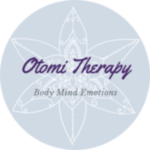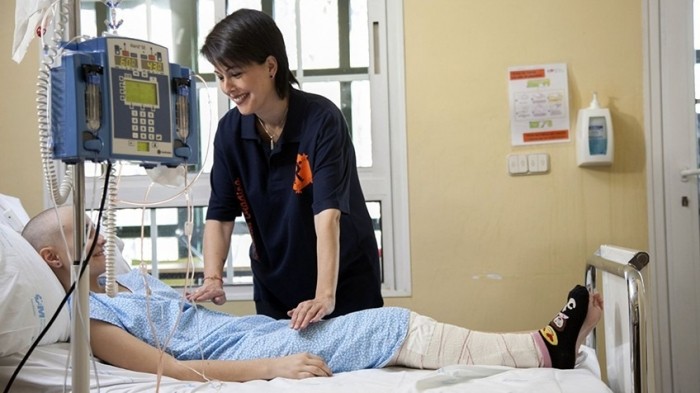The general public is turning with ever-increasing interest to complementary health care, including Reiki Therapy. Reiki in Hospital is even actively being integrated it all over the World. Reiki healing can find its place in integrative medicine and contribute to the development of a more preventive care approach in order to reduce health costs by significantly improving health.
Interest in Complementary Health Care
The advantages of Reiki in a hospital environment
The current medical model is based on expensive medication and technology. However, the evolution in the health sector is oriented towards a double constraint: reducing costs while improving the offer of care.
At hospitals and clinics across the world, Reiki healing is beginning to gain acceptance as a meaningful and cost-effective way to improve patient care. Personal interviews conducted with medical professionals corroborate this view. “Reiki sessions cause patients to heal faster with less pain,” says Marilyn Vega, RN, a private-duty nurse at the Manhattan Eye, Ear and Throat Hospital in New York, USA.
Reiki is integrated in hospital for:
- Reduce stress and promote relaxation
- Potentiate therapeutic actions
- Less use of painkillers
- Decrease side or undesirable effects of medication, treatment and other medical procedures
- Lowering pains
- Increase the body’s ability to heal itself
- Accelerating recovery from surgery or chemotherapy
- Contribute to improvement of mental attitude
Reiki is gaining wider acceptance in the medical establishment. Hospitals are incorporating it into their roster of patient services, often with their own Reiki-trained physicians, nurses and support staff. Reiki was in use in hospital operating rooms as early as the mid-90’s. Since then its acceptance in medicine has grown.
It is now listed in a nursing “scope and standards of practice” publication as an accepted form of care, and a 2008 USA Today article reported that in 2007 15% of U.S. hospitals (over 800) offered Reiki as a regular part of patient services.
Scientific Validation :
A research study at Hartford Hospital in Hartford, Connecticut indicates that Reiki improved patient sleep by 86 percent, reduced pain by 78 percent, reduced nausea by 80 percent, and reduced anxiety during pregnancy by 94 percent.
The development of Reiki in hospital & health care facilities around the world
Mexico, Canada, Argentina and Brazil, Portugal. Also in Australia, where some hospitals also request the services of local aboriginal healer.
Services that integrate Reiki in hospital treatments
Spain
Oncologie service of universaux hospital Ramon y Cajal de Madrid, nurses are trained in reiki to release stress and anxiety related to illness.
France
Hospital Timone, Marseille offers reiki as a complementary therapy for palliative care. In Briançon in the geriatric service. It’s more and more present in intense care unit by the health care staff. Reiki is recognized as a profession by the government and it is covered by 2 complementary health insurrance (Medinat and Cap Vert)
Switzerland
The effectiveness of Reiki is recognized by health insurances that covered Reiki therapy (provided that the therapist is approved by the health insurance company).
Germany
Many hospitals offers Reiki sessions: CGG Klinik (Centrum für ganzheitliche Gynäkologie), Mannheim / St. Augustinus Krankenhaus, Düren / DRK Krankenhaus Lichtenstein (Croix-Rouge).
UK
At the University College London Hospitals NHS, Londres : Reiki treatment are offert to patients suffering from stress, with mood disorders, but also as a complement to cancer treatment or as complementary care for women with endometriosis.
Other institutions offers Reiki session as a complementary treatment for cancer (Wallace Cancer Care (partenaire du Addenbrooke’s Hospital-Cambridge University Hospitals NHS), CambridgeSouth Tees Hospitals NHS, MiddlesbroughSouthampton University Hospitals NHS, Southampton)
USA
CHONY, the Children’s Hospital of New York, oncologists are partnering with complementary medicine therapists in order to alleviate pain and heal young patients. Other American hospitals offer Reiki treatments: Center for Integrative Medicine at the Cleveland Clinic in Cleveland, Ohiao, Portsmouth Regional Hospital in Portsmouth, New Hampshire, University of Michigan Hospital in Ann Harbor, Le Marin General Hospital north of San Francisco.
In Pennsylvania, there is a recognized association of nurses who practice and learn Reiki: the RNRC. As well as in nursing schools such as the Johns Hopkins University of Nursing, the CAM (alternative and complementary medicine) module is becoming increasingly popular with future nursing students.
The plus of Reiki healing therapy
- Reiki treatments do not require any special material, equipment.
- No preparation needed
- No side effects or contraindications
- Can be used at any time during any kind of ongoing treatment.
- Can be used in all areas of a hospital (including in operation room, intensive care units, emergency rooms, and all inpatient and outpatient wards)
- Does not affect the person’s privacy
- Does not require any particular change in clothing
- Can be transmitted through a plaster cast
- The “patient” can be standing, sitting or lying down.
- The action of Reiki does not depend on the consciousness of the recipient. The patient may very well be in a coma, it makes no difference.
A time of change in the perception of health?
Are we finally taking the direction of integrative medicine and work together? Modern and traditional medicines, natural and holistic medicine and moderne science? I feel some great hope in this time of change we are currently going through!
LEARN MORE about Reiki healing – HERE
CONTACT a Reiki healing in Tokyo – HERE
STUDY Reiki healing in Tokyo or Online – HERE

